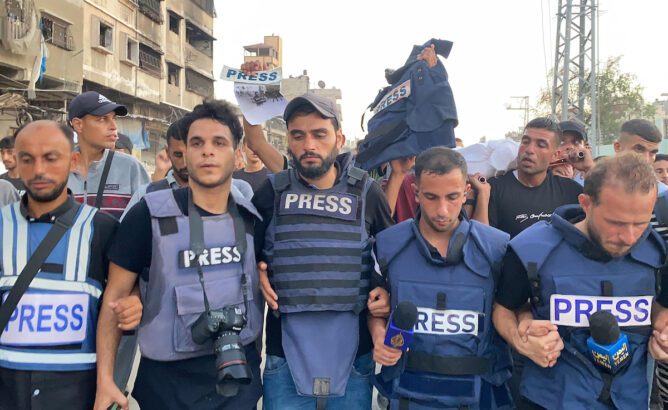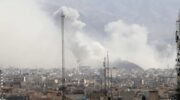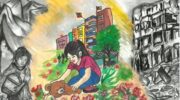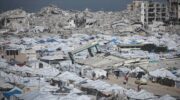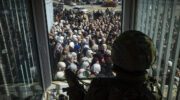Al Jazeera reporter Ismail al-Ghoul had become a household name for anyone following the war on Gaza. When he went to Ismail Haniyeh’s hometown to cover a commemoration of his killing, Israel assassinated him too.
by Tareq S. Hajjaj, reposted from Mondoweiss, August 1, 2024
The assassination of Hamas politburo chief Ismail Haniyeh has led to a new turning point in the war. In Gaza, a state of mourning is apparent.
The assassination that took place in Tehran at dawn on Wednesday opened raw wounds for many in Gaza. It added to the ongoing cycle of fear and loss that has not ended since October 7.
The Qassam Brigades, the military wing of Hamas, mourned Ismail Haniyeh and said in a statement that the assassination that took place in the heart of the Iranian capital was a critical and dangerous event that would take the battle to new dimensions and would have major repercussions on the region.
“By targeting Ismail Haniyeh, Israel imagined that it could weaken the Hamas movement and the Palestinian resistance, and this is a great illusion,” Muhammad al-Hindi, deputy head of Palestinian Islamic Jihad’s political bureau, said during a TV interview.
People in al-Shati’ refugee camp west of Gaza City, where Ismail Hamiyah was born and raised, received the news early in the morning. His home there lays in ruins, bombed by Israel several months prior, and people had gathered around it to commemorate the slain leader. Children held up his picture while standing next to the rubble of his home.
One of the people who was there to capture the scene was a reporter with Al Jazeera whose name was also Ismail. He had become a household name in his own right for anyone following the war’s developments, especially in northern Gaza where the fighting has been the most brutal.
View this post on Instagram
Al-Ghoul’s Instagram page the day he was killed.
Al Jazeera correspondent Ismail al-Ghoul was assassinated by Israel in the line of duty as he covered the commemoration of Ismail Haniyeh. He and another journalist who was a part of his team were in a clearly identifiable press vehicle when a missile directly hit them. It killed both reporters and a young boy walking by. The strike left Ismail al-Ghoul’s body headless.
The death of the two Ismails within the span of a few hours has hit the people of Gaza hard.
“Israel is trying to take away everything from Palestinians, even their pride in such leaders and journalists,” Mahmoud Essa, a journalist in northern Gaza who attended al-Ghoul’s funeral, told Mondoweiss. “The Israelis are sending us a message with every assassination — look what happens to the journalist who goes to film Hanyieh’s destroyed home; we’ve bombed his head off.”
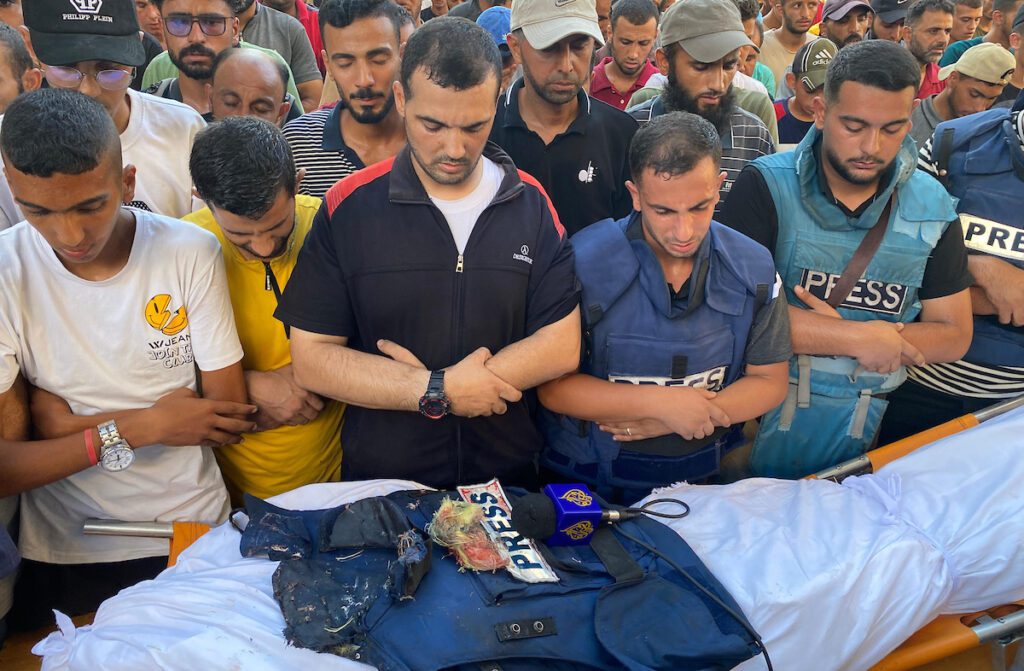
Remembering Ismail al-Ghoul
When the genocidal war first started, Ismail al-Ghoul had resolved to remain in the north to cover the war, sending his wife and little daughter south to escape the fighting.
Anas al-Sharif, a colleague of Ismail at Al Jazeera, appeared in a video standing beside Ismail’s headless body. Holding the press vest that he had worn at the time of his assassination, al-Sharif said that despite his belief that a vest would protect him, it did nothing to save Ismail. Al-Sharif lamented that it was now stained with Ismail’s blood and scattered remains.
As journalists and others carried his body for the funeral, a rescue officer arrived with a plastic bag to collect pieces of Ismail’s head for the burial, Mahmoud Essa told Mondoweiss.
The death of their colleague was a harsh reminder to journalists of the dangers faced by reporters in Gaza, forcing many to confront the grim realities of their profession.

One of the most poignant tributes that circulated was a letter Ismail had written to his daughter, Zeina.
On June 30, Ismail posted the letter on his personal Facebook account. He expressed sorrow over not having seen her since the war began and lamented missing her growth and presence.
“At the beginning of the war, when my little girl Zeina was crawling and trying to say ‘baba,’ I was at my happiest. But as the war continued, my heart was heavy knowing she was displaced and far away,” he wrote.
“Zeina would call out to me when she saw me on the screen, saying ‘Baba.’ It was a wonderful feeling, but it didn’t last. For nine months, she asked, ‘Where is Baba?’ The pain of not being with her and watching her grow was immense.”
He concluded, “But we find solace in knowing that we sacrificed everything for this cause and this message.”
Tareq S. Hajjaj is the Mondoweiss Gaza Correspondent, and a member of the Palestinian Writers Union. He is married, has a 2 year-old son and a large extended family. Hajjaj has has been working as a news writer and translator since 2015.
RELATED ARTICLES:
- Israel’s war on Gaza is the deadliest conflict on record for journalists
- Drone footage raises questions about Israeli justification for deadly strike on Gaza journalists
- Watching the watchdogs: Israel’s attacks on journalists are backfiring
- Israel aims to silence Palestinian journalists
- Shireen Abu Akleh killing: Eyewitness account of journalist’s shooting
- Israel demands full impunity for killing Shireen Abu Akleh – and the Biden administration agrees

